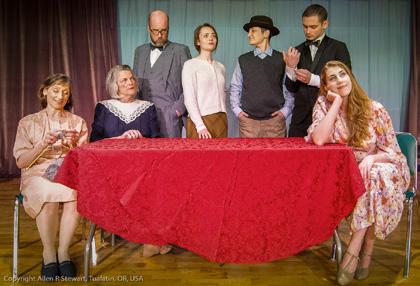
The Christmas tree sets it apart as different from a normal Jewish household, but it fits well and is part of the story. His 1939 living/dining room is well-appointed with colors and furniture that could adorn any high-class Atlanta house. As a first-time director he makes good choices on designs and casting. The Last Night of Ballyhoo at Garland Civic Theatre is directed by Gregory Phillips. German Jews look down on Eastern European Jews. Yet even the prejudice they experience personally doesn't stop them from discriminating against their own. But this wealth and status doesn't change the truth. The Levy and Freitag families live in luxury, belong to an elite country club and their children attend prestigious universities. This musical won Uhry a Tony for Best Book of a Musical.īallyhoo is a German-Jewish debutante ball. The last of the trilogy, Parade, tells about the trial of a Jewish factory manager. The Last Night of Ballyhoo takes us into the Jewish family to explore inter-Jewish prejudice. The first and most well-known is Driving Miss Daisy for which Uhry earned a Pulitzer and an Academy Award.

Written by Alfred Uhry, Ballyhoo is the second in his Atlanta Trilogy about early 20th century southern Jews. The Last Night of Ballyhoo focuses on elite southern Jews in '39. Prejudice exists, but not the way it did in 1939.

They hear parents react but then go off to their diverse worlds wondering why. For our youngest generation the idea is academic, studied in school, sometimes felt, but not understood. We think about prejudice in terms of groups rather than individuals we encounter. We know it's there and wince when we see something that points to it but most of us move through life meeting and working with people of diverse backgrounds with little thought of how they are different. Prejudice is a concept often tossed around as an intellectual exercise today.


 0 kommentar(er)
0 kommentar(er)
